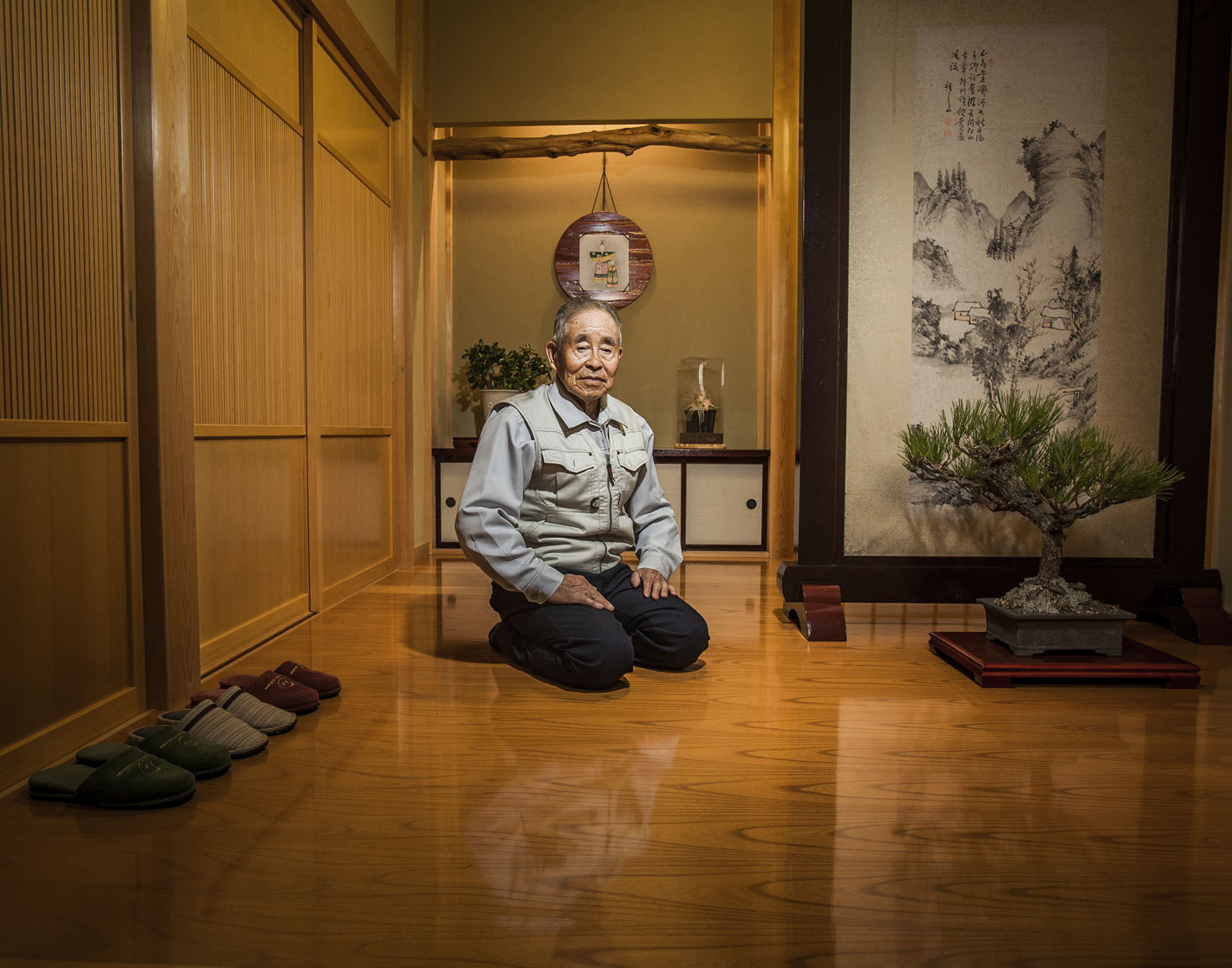Ichiro Sudai is my name. I had a very happy childhood and had very good scores in school. I was always getting awards from education committees. I was selected to be the Vice President of the Student Committee. These were very good days for me.
I remember that the quality of paper decreased in war time. There was a lack of materials. So the awards were all very thin, on very small sheets of paper.
I was in the army for only two years. When I joined, I didn't think Japan would win. But I couldn't say this because I would have been punished. In June of 1945, I was selected for a special team of 180 people from a pool of 5,000 candidates. I trained in Chiba City to dive into the sea and signal where the planes needed to dive to attack ships. We lacked enough planes, and each plane only held one person. I would dive with flag. I had an oxygen tank on my back. The war finished before I ever had to do any of this.
Everyone was brainwashed then. I didn't feel afraid to die. If I did, it would have been with my colleagues. Of course, I was afraid of dying alone. But I was okay dying in solidarity. And at the time, there weren't many luxury foods available either. Only rice. Before the war started, I ate 1.8 liters of rice a day. In the army I had smaller amounts. Everybody was hungry. They would always talk about being hungry.
Colleagues would have to bring the bones to the family after the bodies were incinerated. One colleague was given lots of food by one of the families he returned the remains to. He came back to tell us about it, and everyone was saying, "Go to hell, we had no food!"
The kamikazes were very proud of their duty. They felt as though they were much better than other parts of the military. There was a lot of pride. Lots of jealousy. Before deploying in kamikaze planes, of course, the pilots would be afraid and lose sleep. It was forbidden to tell your family that you would go. But I made a promise I would tell, and I did so with a postcard. Normally Japanese handwriting goes top-down. I hid the message inside the writing.
After they were notified of their duty, kamikaze pilots would have small farewell parties. We exchanged sake and drank. One side of a table was the kamikaze people and the other were people of a higher position, who were not seen often. It was a respectful, farewell sake. But toward the end of the war, we didn't have sake available. We only had water.
With the kamikaze pilots, they didn't return the bones. We cut our hair and our nails and put them in an envelope or a small bag with a message and this was given to our families when we died. Our families would receive a white box with these contents.
On August 15, 1945 there was an announcement that everybody had to go to the grounds and change their clothes. We listened to the radio. I couldn't hear what was being said. But I could tell it wasn't very good news. When I found out we had lost, I was very happy. I had made amends with the idea of death, that it would be my destiny as a pilot.
After the war, there were no factories where I lived. Very few jobs. But there was lots of forest area. I worked there cutting down trees for two or three years.
Then a cousin told me about a medicine company that was hiring. I worked there for thirty-five years and retired at age 61. I studied woodworking and gardening. I worked on temples and shrines. I was a volunteer fireman until 1978. I lived for my hobbies. I wrote poetry and grew flowers. I've made over thirty gardens. I also used to run a lot. I still have a very strong body. I go to the mountains in spring and fall and pick flowers and mushrooms.
